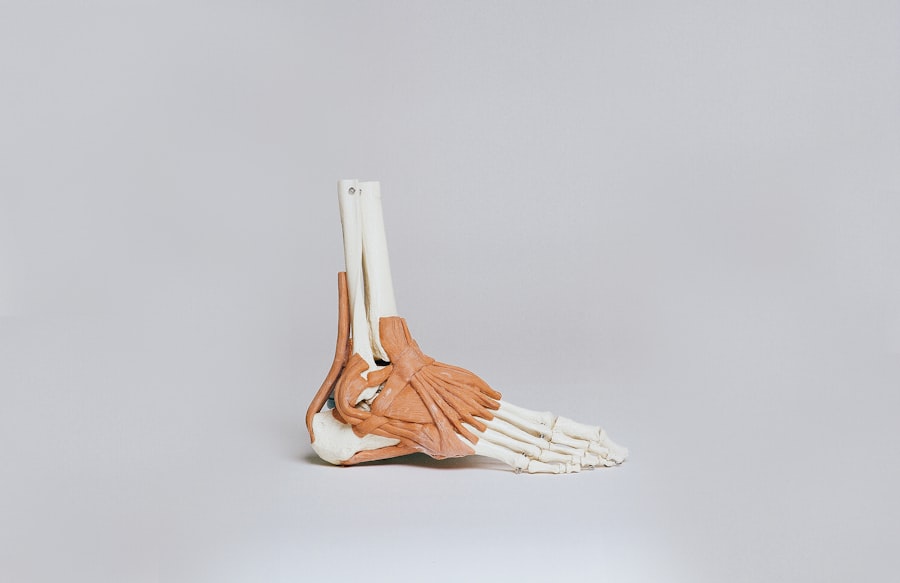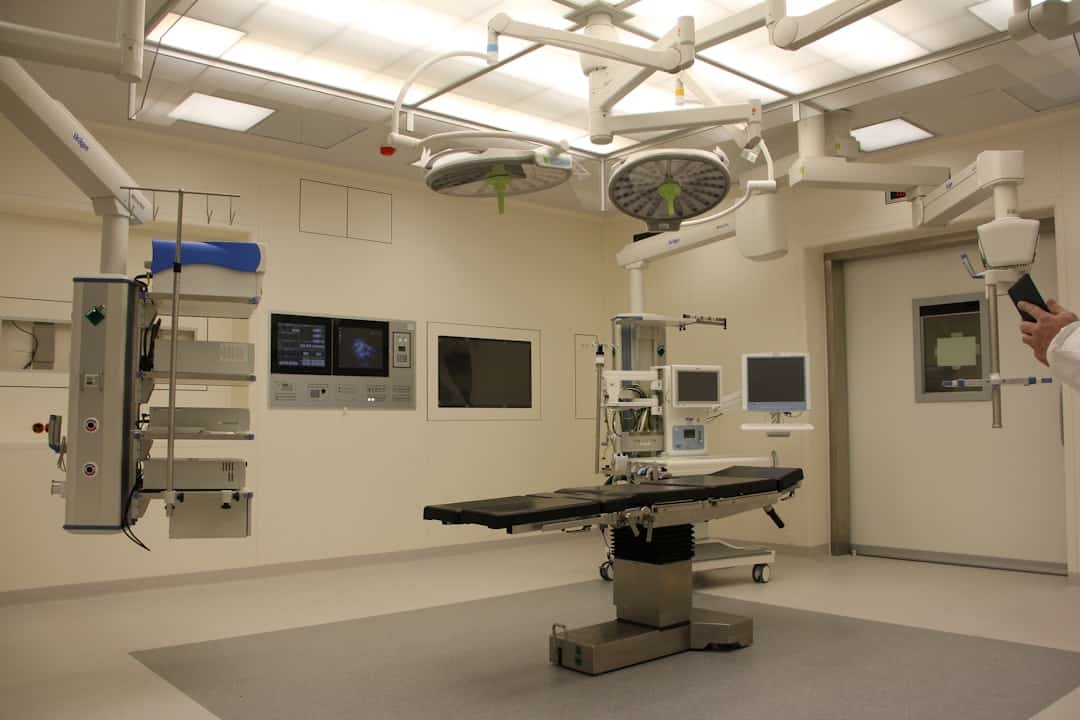The integration of artificial intelligence (AI) into healthcare diagnostics marks a transformative era in the medical field, where technology and human expertise converge to enhance patient outcomes. As healthcare systems grapple with the increasing complexity of diseases and the vast amounts of data generated daily, AI emerges as a powerful ally. By leveraging machine learning algorithms and advanced data analytics, AI can process and interpret medical information at an unprecedented scale and speed.
This capability not only aids healthcare professionals in making informed decisions but also streamlines workflows, ultimately leading to improved patient care. The potential of AI in diagnostics is vast, encompassing various applications from imaging analysis to predictive analytics, thereby reshaping the landscape of modern medicine. Moreover, the adoption of AI in healthcare diagnostics is not merely a trend; it represents a paradigm shift that promises to redefine how we approach disease detection and management.
With the ability to analyze patterns in data that may elude even the most experienced clinicians, AI systems can assist in identifying anomalies and predicting disease progression. This technological advancement is particularly crucial in an era where early detection can significantly influence treatment outcomes. As we delve deeper into the multifaceted role of AI in healthcare diagnostics, it becomes evident that this innovation is not just about enhancing existing practices but also about paving the way for new methodologies that prioritize precision and personalization in patient care.
Key Takeaways
- AI is revolutionizing healthcare diagnostics by improving accuracy and efficiency in disease detection and personalized treatment plans.
- In medical imaging, AI plays a crucial role in analyzing and interpreting complex data to aid in diagnosis and treatment decisions.
- AI has the potential to detect diseases at an early stage, leading to better patient outcomes and reduced healthcare costs.
- Personalized treatment plans can be developed using AI algorithms that analyze patient data to tailor interventions to individual needs.
- Despite its potential, AI in healthcare diagnostics faces challenges such as data privacy, bias, and ethical considerations that need to be addressed for its successful implementation in the future.
The Role of AI in Medical Imaging
Medical imaging has long been a cornerstone of diagnostic medicine, providing critical insights into a patient’s health status through various modalities such as X-rays, MRIs, and CT scans. The introduction of AI into this domain has revolutionized the way images are analyzed and interpreted. By employing deep learning techniques, AI algorithms can be trained to recognize patterns and anomalies within imaging data, often with greater accuracy than human radiologists.
This capability not only enhances diagnostic precision but also reduces the time required for image analysis, allowing healthcare providers to deliver timely interventions. As a result, patients benefit from quicker diagnoses and treatment plans, which can be crucial in acute medical situations. Furthermore, AI’s role in medical imaging extends beyond mere analysis; it also encompasses the enhancement of imaging techniques themselves.
For instance, AI can optimize image quality by reducing noise and improving resolution, leading to clearer visuals that facilitate better interpretation. Additionally, AI-driven tools can assist radiologists by flagging potential areas of concern within images, thereby streamlining the review process and allowing clinicians to focus on critical findings. This collaborative approach between AI and human expertise not only augments the capabilities of healthcare professionals but also fosters a more efficient diagnostic workflow.
As AI continues to evolve, its integration into medical imaging promises to unlock new possibilities for early detection and intervention across a wide array of medical conditions.
AI’s Impact on Early Disease Detection

The ability to detect diseases at their nascent stages is paramount in improving treatment outcomes and enhancing survival rates. AI’s impact on early disease detection is profound, as it enables healthcare providers to identify conditions that may otherwise go unnoticed until they progress to more severe stages. By analyzing vast datasets from electronic health records, genetic information, and lifestyle factors, AI algorithms can identify risk factors and predict the likelihood of disease development in individual patients.
This proactive approach allows for targeted screening and preventive measures, ultimately shifting the focus from reactive to proactive healthcare. Moreover, AI’s predictive capabilities extend to various diseases, including cancer, cardiovascular conditions, and neurodegenerative disorders. For instance, machine learning models can analyze mammogram images to detect early signs of breast cancer with remarkable accuracy, often outperforming traditional methods.
Similarly, AI can assess patterns in heart rate variability or blood pressure readings to predict potential cardiovascular events before they occur. By harnessing these insights, healthcare providers can implement personalized monitoring strategies and interventions tailored to each patient’s unique risk profile. The result is a more nuanced understanding of health that empowers patients and clinicians alike to take charge of disease prevention and management.
Utilizing AI for Personalized Treatment Plans
In an era where personalized medicine is gaining traction, AI plays a pivotal role in tailoring treatment plans to individual patients’ needs. By analyzing a multitude of factors—including genetic makeup, lifestyle choices, and previous treatment responses—AI systems can recommend therapies that are more likely to be effective for specific patients. This level of customization not only enhances the efficacy of treatments but also minimizes adverse effects by avoiding one-size-fits-all approaches that may not suit every individual.
As a result, patients experience improved outcomes and a higher quality of life as their treatment regimens align more closely with their unique biological profiles. Additionally, AI’s ability to process large datasets allows for continuous learning and adaptation of treatment protocols based on real-world outcomes. For instance, machine learning algorithms can analyze data from clinical trials and patient registries to identify which treatments yield the best results for particular demographics or genetic profiles.
This dynamic approach ensures that treatment plans remain relevant and effective as new information emerges. Furthermore, by integrating patient feedback into the decision-making process, AI can help clinicians refine their strategies over time, fostering a collaborative relationship between patients and healthcare providers that prioritizes shared goals and mutual understanding.
Improving Accuracy and Efficiency with AI in Diagnostics
The quest for accuracy in diagnostics is an ongoing challenge within the healthcare sector, where misdiagnoses can lead to detrimental consequences for patients. AI has emerged as a formidable tool in this regard, significantly enhancing diagnostic accuracy across various medical disciplines. By employing sophisticated algorithms capable of analyzing complex datasets—ranging from lab results to imaging studies—AI systems can identify subtle patterns that may escape human observation.
This heightened level of precision not only reduces the likelihood of errors but also instills greater confidence among healthcare providers when making critical decisions regarding patient care. In addition to improving accuracy, AI contributes to operational efficiency within healthcare settings. Traditional diagnostic processes often involve lengthy timelines due to manual data entry and analysis; however, AI streamlines these workflows by automating routine tasks and facilitating rapid data processing.
For example, natural language processing (NLP) algorithms can extract relevant information from unstructured clinical notes, enabling clinicians to access pertinent patient history quickly. This efficiency translates into reduced wait times for patients seeking diagnoses and treatments while allowing healthcare professionals to allocate their time more effectively toward direct patient care. As AI continues to evolve, its potential to enhance both accuracy and efficiency will undoubtedly play a crucial role in shaping the future of healthcare diagnostics.
Overcoming Challenges and Ethical Considerations in AI Diagnostics

Despite the promising advancements brought about by AI in healthcare diagnostics, several challenges and ethical considerations must be addressed to ensure its responsible implementation. One significant concern revolves around data privacy and security; as AI systems rely on vast amounts of patient data for training and analysis, safeguarding this sensitive information becomes paramount. Healthcare organizations must navigate complex regulations surrounding data protection while fostering trust among patients who may be apprehensive about how their information is utilized.
Striking a balance between leveraging data for improved diagnostics and maintaining patient confidentiality is essential for the successful integration of AI technologies. Moreover, there are ethical implications related to algorithmic bias that warrant careful consideration. If AI systems are trained on datasets that lack diversity or representation across different demographics, there is a risk that these algorithms may perpetuate existing disparities in healthcare outcomes.
Ensuring that AI models are developed using inclusive datasets is crucial for promoting equity in diagnostics and treatment recommendations. Additionally, transparency in how AI algorithms arrive at their conclusions is vital; clinicians must understand the rationale behind AI-generated recommendations to make informed decisions that align with their patients’ best interests. Addressing these challenges head-on will be essential for fostering an ethical framework that supports the responsible use of AI in healthcare diagnostics.
The Future of AI in Healthcare Diagnostics
Looking ahead, the future of AI in healthcare diagnostics appears promising yet complex as technology continues to advance at an unprecedented pace. The ongoing development of more sophisticated algorithms will likely enhance the capabilities of AI systems, enabling them to tackle increasingly intricate diagnostic challenges across various medical specialties. As these technologies become more integrated into clinical practice, we may witness a shift toward hybrid models where human expertise collaborates seamlessly with AI-driven insights.
This partnership has the potential to redefine the roles of healthcare professionals while ensuring that patient care remains at the forefront of medical practice. Furthermore, as regulatory frameworks evolve alongside technological advancements, we can anticipate greater standardization in how AI tools are evaluated and implemented within healthcare settings. This evolution will facilitate broader acceptance among clinicians and patients alike while ensuring that safety and efficacy remain paramount considerations.
Ultimately, the future landscape of healthcare diagnostics will likely be characterized by enhanced precision medicine approaches driven by AI innovations—transforming not only how we diagnose diseases but also how we understand health itself. As we embrace this new frontier, it is essential to remain vigilant about ethical considerations and strive for equitable access to these groundbreaking technologies for all patients.
If you’re interested in how AI is transforming various sectors, particularly in healthcare diagnostics, you might also find it intriguing to explore the technological advancements in other fields. For instance, the article on what makes the Google Pixel phone different delves into the unique features and innovations that set this device apart, many of which are driven by AI. Understanding these advancements can provide a broader perspective on how AI is integrated into consumer technology, complementing its applications in healthcare.
FAQs
What is AI in healthcare diagnostics?
AI in healthcare diagnostics refers to the use of artificial intelligence technologies, such as machine learning and deep learning, to analyze medical data and assist in the diagnosis of diseases and medical conditions.
How is AI revolutionizing healthcare diagnostics?
AI is revolutionizing healthcare diagnostics by enabling more accurate and efficient analysis of medical images, such as X-rays, MRIs, and CT scans, as well as other types of medical data. This can lead to earlier detection of diseases and more personalized treatment plans for patients.
What are some examples of AI applications in healthcare diagnostics?
Some examples of AI applications in healthcare diagnostics include computer-aided detection and diagnosis systems for medical imaging, predictive analytics for identifying patients at risk of certain diseases, and natural language processing for analyzing and extracting information from medical records.
What are the benefits of using AI in healthcare diagnostics?
The benefits of using AI in healthcare diagnostics include improved accuracy and speed of diagnosis, enhanced efficiency in analyzing large volumes of medical data, and the potential for more personalized and targeted treatment plans for patients.
Are there any challenges or concerns with using AI in healthcare diagnostics?
Some challenges and concerns with using AI in healthcare diagnostics include the need for robust data privacy and security measures, the potential for bias in AI algorithms, and the importance of ensuring that AI technologies are used as tools to support healthcare professionals rather than replace them.

